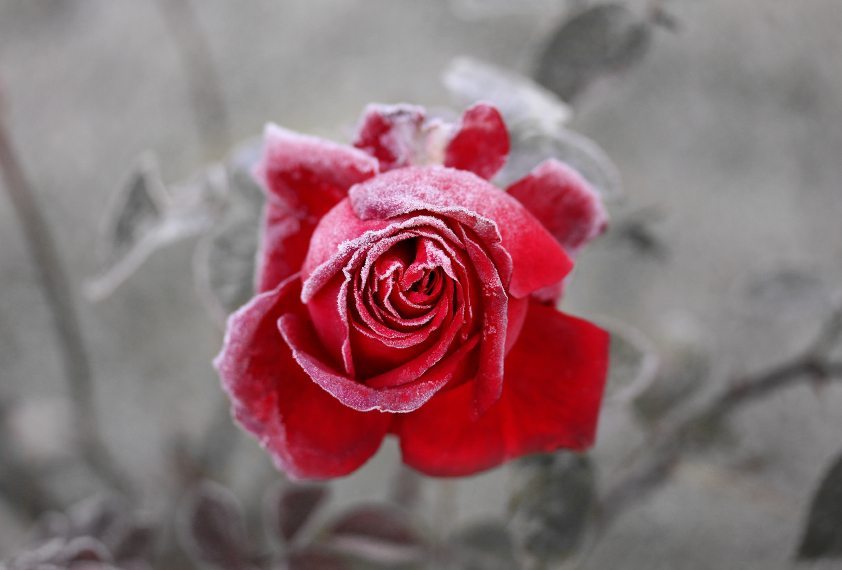
How to Prepare Rose Gardens for Winter
It’s that time of year again when the cold is settling in all around us. Having your car covered in snow is bad, so we can only imagine the horrible impact that the snow is having on the rose gardens outside. Being able to bring everything inside would be ideal, but most of our beautiful roses are so massive and grounded that it just wouldn’t be feasible to even try to uproot them all.
Knowing how to protect and cover your most valuable plants from the cold and ice will save you tons of heartache and stress, especially the roses. However, if the proper care of your rose gardens is taken, this doesn’t have to be a second thought. Here are a few tips on how to care for roses in the winter. By following these simple steps, rose gardens don’t have to be destroyed by cold weather anymore.
Rose gardens in winter
Roses that are correctly protected to last throughout the winter are said to be hardened off. This means that the plant’s cell walls are thickening since they’re preparing for dormancy. It is a natural process and roses are often able to harden off on their own. Usually, while this is happening, the canes take on a purplish cast. The best way to harden off a rose is by making sure that the plant stops growing and is fully dormant before the cold weather arrives. This is one of the most vital steps in keeping roses healthy.
Rose dormancy
To help move dormancy along, there are different steps to take.
Take good care during the growing season
The better care you give them during the growing season, the better chance you have of the roses coming away without any damage. For instance, if your roses didn’t have enough water or nutrients in the summer and fall, they’ll be in a weakened state once winter comes.
Stop fertilization six weeks before the first frost
If you apply nitrogen fertilizers too late, this may keep a rose growing longer into fall or winter than is safe. Check the National Weather Service website if you’re not sure when the first frost takes place in your region. Also, reduce how much you water the rose garden, although never let them go into the winter completely dry.
Letting rose hips develop accelerates dormancy
Rather than deadheading the spent flowers from late fall bloom, let the spent flowers go to seed. The hips, which are commonly referred to as seed pods, need to develop entirely. Most plants, including roses, slow down growth while their seeds mature. The slowing combined with less fertilizer and no pruning increase dormancy.
Insulate your roses
Lastly, insulate the roses from cold temperatures, drying winds and unusually warm weather. When temperatures fluctuate, this causes the plant to freeze and thaw, refreeze and thaw again. This will kill a cane in a snap or end up ripping a small rose right out of the ground. On the other hand, strong winds have a tendency of drying out canes. Then, since the ground is frozen, the plant can’t resupply the canes with water.
Create mounds around the base of each rose bush with soil, straw or mulch. After the big freeze hits, it is safe to cover them. There are several ways to accomplish this and each type of rose has its preference. You can use a sheet and cover the plant and secure the sheet at the roots with rocks.
If your rose bush is in a container, you can place it in a storage room or your garage. There are rose cones and things that you can buy at your local garden store or online that can help in protecting your roses from the cold as well.
Some people in very cold climates use a method called the Minnesota Tip Method, which seems like a back-breaking process that I would avoid if possible, but if you have lots of roses and live in a majorly cold area it may be right for you.
Tips
Don’t forget to water the roses. Even though it is cold, the roots may be dry. Check the soil and make sure it doesn’t dry out completely. Depending on your zone, your roses may not need any special winter protection. Choose the right rose that fits your zone and get advice from local gardeners about how they keep their roses safe throughout the winter.